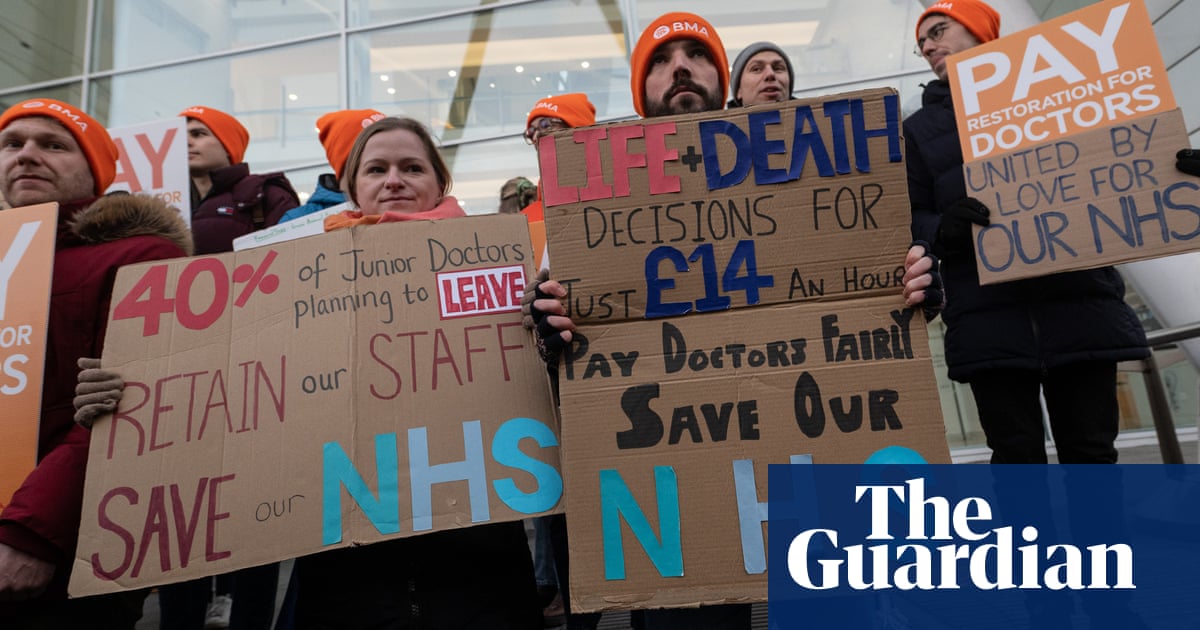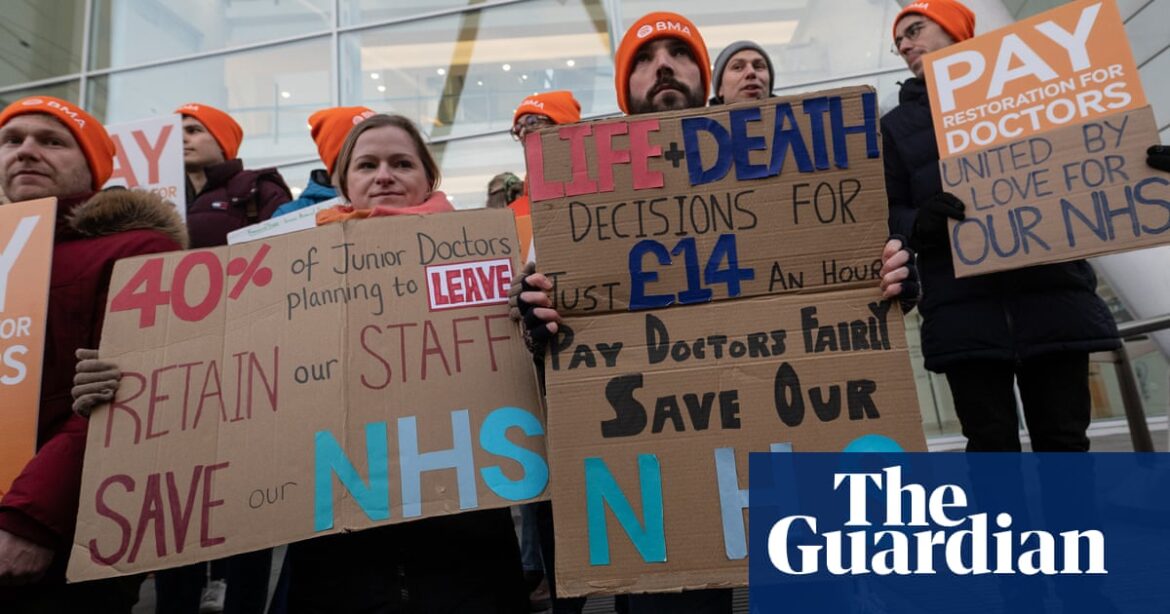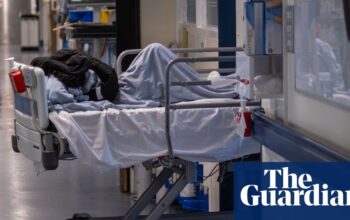
On Wednesday, a six-day strike by junior doctors will cause significant disruption, resulting in the cancellation of care for thousands of patients. This is the longest strike in the 75-year history of the NHS.
Charities focused on health expressed concern for individuals whose scheduled appointments had been delayed. This includes those with cancer and vision issues, who may experience increased anxiety and distress. There is also a heightened risk that their condition could deteriorate due to the pause in receiving necessary assistance.
The Patients Association warned that patient safety could be at risk due to a lack of hospital staff during the upcoming strike, starting at 7am. They urged government officials and the British Medical Association (BMA) to enlist mediators in order to resolve the ongoing conflict regarding the pay of junior doctors, as previous negotiations were unsuccessful.
Prof Sir Stephen Powis, the national medical director of NHS England, stated that there will probably be a significant number of appointments that will be cancelled or rescheduled. This will add on to the 1.2 million appointments that have already been affected by over a year of industrial action.
According to Powis, the ongoing strikes by doctors, nurses, and other staff for 13 months have had a significant effect on the NHS. The upcoming strike, which will take place this week, will mark the 10th instance of junior doctors going on strike since March. By the end of the strike next Tuesday, they will have collectively refused to work for a total of 34 days.
Their actions over the past 28 days have resulted in nearly 1 million rescheduled outpatient appointments and operations.
The recent strike by NHS workers was expected to be particularly challenging due to its unusually long duration and the decision by the BMA to hold it during a week when the healthcare system was already overwhelmed with a high number of winter illnesses. According to Powis, the timing of the strike could not have been worse for the NHS.
The Royal National Institute of Blind People expressed worry about numerous patients who may face the difficult news this week that their appointment has been either cancelled, rescheduled, or postponed. Those who are blind or partially sighted may not be aware that their appointment has been affected, as the notification was delivered through a letter rather than in braille or electronically, stated Phil Ambler, the charity’s director for England.
The Patients Association expressed concerns that strikes create obstacles for patients who already struggle to access proper healthcare. Julie Thallon, the acting chair of the charity, stated that patients should be able to receive safe and efficient care when necessary, but strike action adds additional obstacles on top of the already long wait times many patients face.
“We have great concerns about the potential impact on patient safety during strike days due to the actions of the junior doctors. If necessary, we suggest bringing in mediators, but we urge finding a resolution to this deadlock.”
Skip the promotion for the newsletter.
after newsletter promotion
Sarah Ruane, Macmillan Cancer Support’s director of advocacy, said: “Any uncertainty caused by industrial action is likely to cause real worry and anxiety for people living with cancer who have upcoming appointments or are waiting for results.”
The committee for junior doctors at BMA has been advocating for a 35% increase in pay in order to fully restore their salaries, as the value of their pay has decreased by 26% in real terms since 2008-09.
Dr. Robert Laurenson and Dr. Vivek Trevedi, the co-chairs of the committee, have urged Victoria Atkins, the health secretary, to fulfill her promise from last year and give junior doctors a final improved pay offer. The ministers have already implemented an average 8.8% increase for them in 2023-24 and have offered an additional 3%.
The government is pressuring doctors to resume their strike by offering them only £15.50 per hour. The doctors are calling on Atkins to provide a realistic proposal that can be presented to the 46,000 junior doctors in the BMA for consideration.
Matthew Taylor, the chief executive of the NHS Confederation, said hospital bosses had entered 2024 “with a sense of foreboding and trepidation” because of the strikes were coinciding with the NHS being under extra pressure because of winter.
According to Atkins, January is typically the busiest month for the NHS. The planned strikes will have a significant effect on patients nationwide. To ensure patient safety, the NHS has implemented strong contingency plans. It is essential for anyone in need of medical assistance to seek help as usual.
Source: theguardian.com



